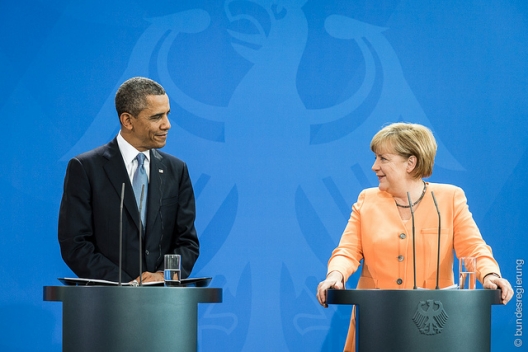 Addressing the opening session late last month of the Munich Security Conference, a yearly gathering of top Western diplomats and defense officials, President Joachim Gauck of Germany expressed sentiments that not many years ago would have brought demonstrators into the streets. The Germans, he declared, should stop hiding behind guilt over their militaristic past and take more responsibility for shaping international affairs. If that meant using the Germany Army, “Germany should not say ‘no’ on principle. . . .”
Addressing the opening session late last month of the Munich Security Conference, a yearly gathering of top Western diplomats and defense officials, President Joachim Gauck of Germany expressed sentiments that not many years ago would have brought demonstrators into the streets. The Germans, he declared, should stop hiding behind guilt over their militaristic past and take more responsibility for shaping international affairs. If that meant using the Germany Army, “Germany should not say ‘no’ on principle. . . .”
Mr. Gauck’s basic argument was that Europe and NATO must assume a greater role in international affairs, and that Germany in particular must do more, as befits its status as Europe’s most populous and industrialized country. . . .
President Gauck is hardly the first German leader to challenge Germany’s military reticence. But the venue and timing of his comments — and his own history as an anti-Communist pastor in East Germany — ensured that his call would earn a wide audience. And he is not alone in urging more German involvement in global concerns. On the eve of the conference, Ursula von der Leyen, who was named Germany’s first female defense minister in December, declared in an interview that she was prepared to send more German troops into conflict zones. On the day before Mr. Gauck spoke, the United Nations secretary general, Ban Ki-moon, visited Angela Merkel and Foreign Minister Frank-Walter Steinmeier to ask for a greater German political and economic presence in the search for global stability.
Image: President Barack Obama and German Chancellor Angela Merkel, June 19, 2013 (photo: Bundesregierung)
